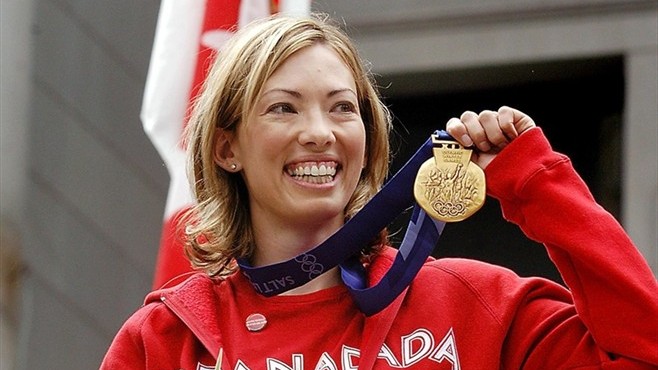Sports
Explosive report on Russian doping draws attention of Canada’s Olympians

Canada’s Beckie Scott (in photo), whose Olympic bronze in cross-country skiing in 2002 was eventually upgraded to gold when Russians were stripped of their medals, spoke at a World Anti-Doping Agency meeting Thursday in Montreal. (Photo: National Speakers Bureau)
An explosive report detailing what’s described as “a state-run doping program” by Russia at the 2014 Winter Games has the attention of some Canadians who were there.
A New York Time articles published Thursday quoted the director of the Russian lab handling testing during the Olympics. Dr. Grigory Rodchenkov explained in great detail how he and those working there helped the host country beat the system in Sochi.
The Times claimed dozens of Russian athletes, including 15 medallists, were doping before and during the Games.
It’s the latest and biggest in a series of doping revelations about Russia in recent months that have centred mainly on swimming and track and field.
Canada’s Beckie Scott, whose Olympic bronze in cross-country skiing in 2002 was eventually upgraded to gold when Russians were stripped of their medals, spoke at a World Anti-Doping Agency meeting Thursday in Montreal
As the chair of WADA’s athletes committee urged the organization to use its influence to ban Russia from this summer’s Olympics in Rio, the Times article appeared to further fuel the furore.
“I totally, fully support Beckie Scott’s statements and what she’s doing on behalf of clean athletes in the world,” Canadian hockey player Hayley Wickenheiser told The Canadian Press.
The Canadian Centre for Ethics in Sport urged both the international governing body of track and field and the International Olympic Committee to “stand firm” on suspending Russia’s track team from Rio this summer.
“The IAAF is due to report on Russia’s eligibility for the Rio Olympics on June 17,” CCES president Paul Melia said in a statement. “The clean athletes of the world are watching to see if it will exercise real leadership and do the right thing for clean sport.”
What raised Wickenheiser’s eyebrows was the Times assertion that Russia’s “entire women’s hockey team was doping throughout the Games.”
The Russian women finished sixth in the tournament. Two members of that team were previously Wickenheiser’s teammates on the University of Calgary Dinos.
“To see women’s hockey implicated is a bit surprising because hockey is not a sport typically with a history of doping in its culture,” Wickenheiser said. “That was quite alarming for me to read that.”
Scott’s husband Justin Wadsworth coached Canada’s cross-country ski team in Sochi. The Times stated 14 skiers on Russia’s cross-country team were part of the doping scheme.
Wadsworth was not at all surprised by the doping allegations or the extent of them detailed by the Times.
That a whistleblower emerged to tell the tale does surprise him.
“The way these things usually break is someone on the inside finally sees something and they want to speak out and they have the guts to do it,” Wadsworth said. “In Russia, that’s a really dangerous thing. My hat goes off to the people who have spoken up thus far within the system.
“Kids will hear it on the news tonight. They’ll ask about it. Our kids know and still ask questions about what happened with Beckie’s medal and the Russians.”
Russia topped the medal table in both gold and total medals with 13 and 33 respectively in 2014. The country won 15 medals, including three gold, four years earlier in Vancouver and Whistler, B.C.
Canada earned 25 medals—one less than in 2010—with 10 of them gold in Sochi. Whether Canada’s medal count changes due to recent revelations remains to be seen and would take years in any case.
Three-time Olympian Sam Edney of Calgary was part of Canada’s mixed relay team that finished fourth in luge.
Luge isn’t a sport that would benefit much from chemical doping, Edney says. But he’s sad for any athlete, Canadian or otherwise, who now feels they weren’t competing on a level playing field in Sochi.
“My first reaction is there’s always a lot of sadness,” Edney said. “As an athlete you want to be competing against athletes who are clean and hoping that the best athlete wins always.
“I hope the athletes who were cheating, I hope they get caught and are punished for that.”
Added Wickenheiser: “As a member of the IOC athletes’ commission, it’s part of my job to stand up for clean athletes.”
“I hope it’s a watershed moment for clean sport. There’s too many athletes losing out on medal and performance positions because of athletes that aren’t clean.”





















